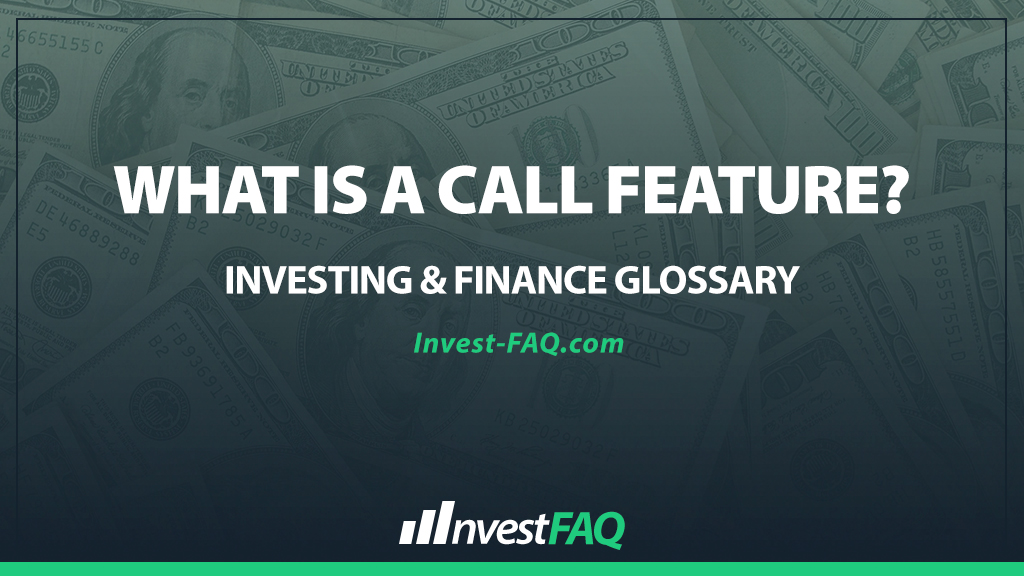
Call Feature
Contents
A call feature is a provision in the terms of a bond or other fixed-income security that allows the issuer to repurchase or “call” the security before its maturity date, usually at a predetermined price. This feature provides issuers with the flexibility to adjust their debt obligations in response to changes in interest rates or improvements in their credit situation.
In business, the call feature is often used by companies and municipalities as a strategic tool for debt management.
It allows issuers to refinance their debt when interest rates decline, leading to potential savings on interest expenses. However, for investors, call features introduce a risk that the bond may be redeemed before maturity, affecting their expected income from interest payments.
Example of a Call Feature
Imagine “Tech Innovations Inc.,” a company that issues a 10-year bond with a face value of $1,000,000 and an annual coupon rate of 5%. The bond includes a call feature allowing the company to repurchase the bond after 5 years at a call price of $1,050,000.
Issuance: Tech Innovations Inc. records the bond issuance by increasing its cash and long-term liability accounts by $1,000,000.
Annual Interest Payment: Each year, the company records an interest expense of $50,000 (5% of $1,000,000), paying this amount to bondholders.
Exercise of Call Feature: If, after 5 years, interest rates have dropped significantly, the company decides to exercise the call feature, repurchasing the bond for $1,050,000 to reduce future interest expenses.
In this scenario, by exercising the call feature, Tech Innovations Inc. can retire its existing high-interest debt and potentially reissue new bonds at a lower interest rate, reducing its overall interest expense.
The accounting implications include the removal of the bond liability from the balance sheet and recording the payment of the call premium. This strategic financial move can improve the company’s profitability and debt profile but must be carefully weighed against the cost of the call premium and potential market reactions.
Significance for Investing & Finance
The call feature holds significant importance in accounting and financial management for several reasons:
Interest Expense Management: It provides a mechanism for issuers to manage and potentially reduce their interest expenses by taking advantage of favorable interest rate movements.
Debt Portfolio Optimization: Issuers can optimize their debt portfolio by replacing high-cost debt with cheaper alternatives, improving their overall financial health.
Investor Relations: The presence of a call feature can affect the attractiveness of a bond to investors, impacting the bond’s pricing and the issuer’s cost of capital.
Regulatory and Disclosure Requirements: The call feature requires careful disclosure in financial statements and regulatory filings, ensuring transparency for investors regarding the terms and potential impacts of bond redemption.
In summary, a call feature is a critical element of debt instruments that provides issuers with flexibility in managing their financial obligations. While beneficial for issuers seeking to optimize their debt costs, it introduces certain risks for investors. Understanding and effectively managing these aspects are crucial for both issuers and investors in the fixed-income market.
FAQ
What factors might a company consider before exercising a call feature on its bonds?
A company might consider prevailing interest rates, the potential cost savings on future interest payments, and the impact on its relationship with investors before deciding to exercise a call feature on its bonds.
How does the presence of a call feature affect the pricing of a bond in the market?
The presence of a call feature generally leads to a lower price for the bond compared to similar bonds without a call feature, as investors require higher yields to compensate for the risk of the bond being called away before maturity.
Can an investor refuse a call on a bond if they prefer to keep it until maturity?
No, investors cannot refuse a call on a bond; if the issuer decides to exercise the call feature, the bondholder is required to sell the bond back to the issuer at the predetermined call price.
What is a “call protection” period, and how does it benefit bond investors?
A call protection period is a specified duration after the bond’s issuance during which the issuer cannot exercise the call feature, providing investors with a guaranteed income stream for a minimum period and protecting them from early redemption.
